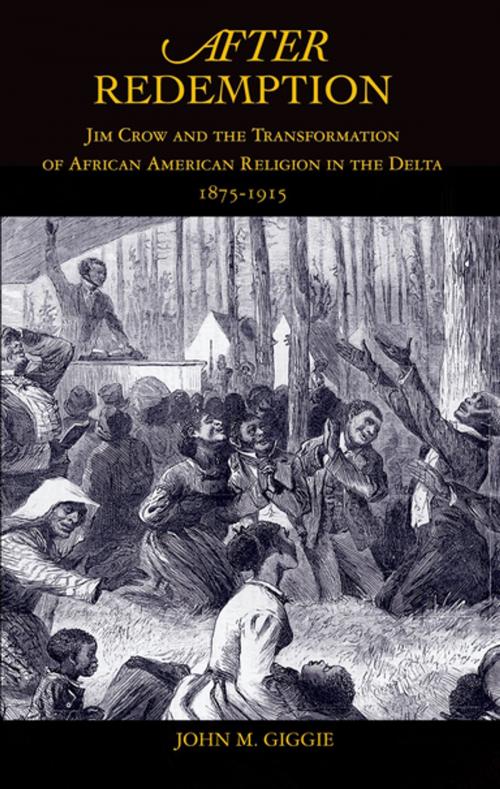After Redemption
Jim Crow and the Transformation of African American Religion in the Delta, 1875-1915
Nonfiction, Social & Cultural Studies, Social Science, Cultural Studies, African-American Studies, History, Americas, United States, Civil War Period (1850-1877), 19th Century| Author: | John M. Giggie | ISBN: | 9780190293888 |
| Publisher: | Oxford University Press | Publication: | November 21, 2007 |
| Imprint: | Oxford University Press | Language: | English |
| Author: | John M. Giggie |
| ISBN: | 9780190293888 |
| Publisher: | Oxford University Press |
| Publication: | November 21, 2007 |
| Imprint: | Oxford University Press |
| Language: | English |
After Redemption fills in a missing chapter in the history of African American life after freedom. It takes on the widely overlooked period between the end of Reconstruction and World War I to examine the sacred world of ex-slaves and their descendants living in the region more densely settled than any other by blacks living in this era, the Mississippi and Arkansas Delta. Drawing on a rich range of local memoirs, newspaper accounts, photographs, early blues music, and recently unearthed Works Project Administration records, John Giggie challenges the conventional view that this era marked the low point in the modern evolution of African-American religion and culture. Set against a backdrop of escalating racial violence in a region more densely populated by African Americans than any other at the time, he illuminates how blacks adapted to the defining features of the post-Reconstruction South-- including the growth of segregation, train travel, consumer capitalism, and fraternal orders--and in the process dramatically altered their spiritual ideas and institutions. Masterfully analyzing these disparate elements, Giggie's study situates the African-American experience in the broadest context of southern, religious, and American history and sheds new light on the complexity of black religion and its role in confronting Jim Crow.
After Redemption fills in a missing chapter in the history of African American life after freedom. It takes on the widely overlooked period between the end of Reconstruction and World War I to examine the sacred world of ex-slaves and their descendants living in the region more densely settled than any other by blacks living in this era, the Mississippi and Arkansas Delta. Drawing on a rich range of local memoirs, newspaper accounts, photographs, early blues music, and recently unearthed Works Project Administration records, John Giggie challenges the conventional view that this era marked the low point in the modern evolution of African-American religion and culture. Set against a backdrop of escalating racial violence in a region more densely populated by African Americans than any other at the time, he illuminates how blacks adapted to the defining features of the post-Reconstruction South-- including the growth of segregation, train travel, consumer capitalism, and fraternal orders--and in the process dramatically altered their spiritual ideas and institutions. Masterfully analyzing these disparate elements, Giggie's study situates the African-American experience in the broadest context of southern, religious, and American history and sheds new light on the complexity of black religion and its role in confronting Jim Crow.















